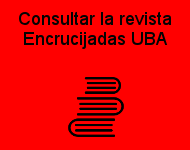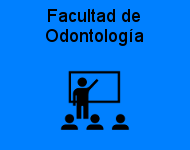Cardigni, Julieta - Laham Cohen, Rodrigo - Noce, Esteban - Paiaro, Diego - Requena, Mariano - Sapere, Analía
En: Anales de Filología Clásica; Vol. 1 Núm. 33 (2020): La antigüedad grecolatina en perspectiva interdisciplinaria (Analía Sapere, coord.); 5-6
Tipo de documento: info:eu-repo/semantics/article | Formato: application/pdf
Editor: Instituto de Filología Clásica - FFyL-UBA
Fuente: Revistas Científicas de FILO
Rodríguez Adrados, Francisco
En: Anales de Filología Clásica; Núm. 12 (1992); 249-252
Temas: biblioteca
Tipo de documento: info:eu-repo/semantics/article | Formato: application/pdf
Editor: Instituto de Filología Clásica - FFyL-UBA
Fuente: Revistas Científicas de FILO
Adrados, Francisco Rodríguez
En: Anales de Filología Clásica; núm. 6 (1953); 225-238
Temas: literatura griega; filología griega - Pericles; Arquíloco
Tipo de documento: info:eu-repo/semantics/article | Formato: application/pdf
Editor: Instituto de Filología Clásica - FFyL-UBA
Fuente: Revistas Científicas de FILO
Prieto, Eduardo J.
En: Anales de Filología Clásica; Núm. 12 (1992); 115-185
Tipo de documento: info:eu-repo/semantics/article | Formato: application/pdf
Editor: Instituto de Filología Clásica - FFyL-UBA
Fuente: Revistas Científicas de FILO
Pégolo, Liliana; UBA
En: Anales de Filología Clásica; núm. 25 (2012); 115-118
Tipo de documento: info:eu-repo/semantics/article | Formato: application/pdf
Editor: Instituto de Filología Clásica - FFyL-UBA
Fuente: Revistas Científicas de FILO
Bucca, Salvador
En: Anales de Filología Clásica; núm. 8 (1964); 241-248
Tipo de documento: info:eu-repo/semantics/article | Formato: application/pdf
Editor: Instituto de Filología Clásica - FFyL-UBA
Fuente: Revistas Científicas de FILO
The importance of the descriptive elements in the story of the facts in Expeditio Persica by George of Pisidia (III. 225-280)
Silventi, María Cristina
En: Anales de Filología Clásica; Vol. 2 Núm. 33 (2020): La narración en Bizancio: perspectivas narratológicas sincrónicas y diacrónicas; 125-141
Temas: ἔκφρασις - λόγος περιηγματικός - ἐναργῶς - Pisides - Byzantine epic - ἔκφρασις - λόγος περιηγματικός - ἐναργῶς - Pisides - épica bizantina
Contenido: In Byzantine society, reading in public was common. Who was in charge of this was aware of its influence in the auditorium. The well-crafted text and the expressiveness of the speaker were fundamental. In this paper we focus on the use of George of Pisidia (610?-632?) ἔκφρασις in a fragment of Expeditio Persica, (vv. 225-280), where he recounts the final part of the first campaign of the Emperor Heraclius (610?-641), with the purpose of captivating the attention of the courteous elite that surrounded him, exalting his figure as a representative of the Christian faith.
...ver más Tipo de documento: info:eu-repo/semantics/article | Formato: application/pdf
Editor: Instituto de Filología Clásica - FFyL-UBA
Fuente: Revistas Científicas de FILO
Bagnasco, Elsa
En: Anales de Filología Clásica; Núm. 12 (1992); 253
Tipo de documento: info:eu-repo/semantics/article | Formato: application/pdf
Editor: Instituto de Filología Clásica - FFyL-UBA
Fuente: Revistas Científicas de FILO
Schroeder, Alfredo J.
En: Anales de Filología Clásica; Núm. 12 (1992); 187-198
Temas: Marcial - Virgilio
Tipo de documento: info:eu-repo/semantics/article | Formato: application/pdf
Editor: Instituto de Filología Clásica - FFyL-UBA
Fuente: Revistas Científicas de FILO
Herescu, N. I.
En: Anales de Filología Clásica; núm. 6 (1953); 117-133
Temas: literatura latina; filología latina - métrica
Tipo de documento: info:eu-repo/semantics/article | Formato: application/pdf
Editor: Instituto de Filología Clásica - FFyL-UBA
Fuente: Revistas Científicas de FILO
Pagés, Gerardo H.
En: Anales de Filología Clásica; Núm. 12 (1992); 93-114
Temas: latín - declinaciones - gramática
Tipo de documento: info:eu-repo/semantics/article | Formato: application/pdf
Editor: Instituto de Filología Clásica - FFyL-UBA
Fuente: Revistas Científicas de FILO
The Legis Actiones: from Twelve Tables of Roman law to the Plautu's stage
Suárez, Marcela A.
En: Anales de Filología Clásica; Vol. 2, núm. 28 (2015); 111-120
Temas: legis actiones; comedy; Plautus; in ius uocatio; loving motive - legis actiones; comedy; Plautus; in ius uocatio; loving motive
Contenido: This paper studies the system of legis actions and their mode of representation in Plautus´stage in relation to the loving motive. The analysis of different scenes allows to show that the plautine comedy is a source for the knowledge and reconstruction of the social and legal reality of Rome because the play writer questions certain topics that have been accepted without objections.
...ver más Tipo de documento: info:eu-repo/semantics/article | Formato: application/pdf
Editor: Instituto de Filología Clásica - FFyL-UBA
Fuente: Revistas Científicas de FILO
Schniebs, Alicia; UBA
En: Anales de Filología Clásica; núm. 21 (2008); 83-113
Temas: Propercio; elegía; polyeideía; Vertumnus; corpus; Propertius; elegy
Tipo de documento: info:eu-repo/semantics/article | Formato: application/pdf
Editor: Instituto de Filología Clásica - FFyL-UBA
Fuente: Revistas Científicas de FILO
Cardigni, Julieta
En: Anales de Filología Clásica; Vol. 1, núm. 30 (2017); 62-63
Tipo de documento: info:eu-repo/semantics/article | Formato: application/pdf
Editor: Instituto de Filología Clásica - FFyL-UBA
Fuente: Revistas Científicas de FILO
Deli, Delia Argentina
En: Anales de Filología Clásica; núm. 10 (1967); 113-119
Temas: literatura griega; filología griega - reseña; Lesky
Tipo de documento: info:eu-repo/semantics/article | Formato: application/pdf
Editor: Instituto de Filología Clásica - FFyL-UBA
Fuente: Revistas Científicas de FILO
The infernal journey in Cataplus by Lucian: a poetics of invention in the crossing through the Stygia (Cat. 18-22)
Martínez, María Victoria
En: Anales de Filología Clásica; Vol. 2 Núm. 34 (2021); 109-124
Temas: Myth - Satire - Parody - Poetic programme - Lucian - Mito - Sátira - Parodia - Programa poético - Luciano
Contenido: The descent or the Tyrant (Cat.) is a dialogue by Lucian of Samosata formed by the rhetorical topics of Hades and Tyranny. The studies on this piece focused on the theme of the abuse of the power. Nevertheless, Mestre (2013) has indicate the importance of the myth as an element in tension with satire. This paper proposes an analysis of the strategies of redefinition of the mythical versions. The purpose is to show that the relations between myth and satire construct levels of meaning where not only the ridicule of the excesses of power can be read, but also the parodic elaboration.
...ver más Tipo de documento: info:eu-repo/semantics/article | Formato: application/pdf
Editor: Instituto de Filología Clásica - FFyL-UBA
Fuente: Revistas Científicas de FILO
Schmieder, Carsten; Institut für Kulturwissenschaft, Humboldt-Universität zu Berlin
En: Anales de Filología Clásica; núm. 24 (2011); 147-157
Temas: Mito; Marcial; epigramas; Horacio; alegoría; myth; epigram; Horace; allegory
Tipo de documento: info:eu-repo/semantics/article | Formato: application/pdf
Editor: Instituto de Filología Clásica - FFyL-UBA
Fuente: Revistas Científicas de FILO
Legitimidad, poder y saber en Hesíodo. Conflictividad social y constitución ética
Colombani, María Cecilia
En: Anales de Filología Clásica; Vol. 1 Núm. 33 (2020): La antigüedad grecolatina en perspectiva interdisciplinaria (Analía Sapere, coord.); 61-69
Temas: King - justice - order - conflict - linage - Rey - justicia - orden - conflicto - linaje
Contenido: El objetivo de este trabajo es analizar la figura del rey justo, presente en Teogonía y territorializarlo en el linaje diurno que es una de las tantas formas que encarna la dicotomía de lo Mismo en su contraposición con lo Otro. En esa territorialización el rey cumple la función de sostenedor de un orden que emana de los dioses y cuyas características se encuentran en los adjetivos asociados a su figura.
...ver más Tipo de documento: info:eu-repo/semantics/article | Formato: application/pdf
Editor: Instituto de Filología Clásica - FFyL-UBA
Fuente: Revistas Científicas de FILO
Carosi, María M.
En: Anales de Filología Clásica; núm. 8 (1964); 187-195
Tipo de documento: info:eu-repo/semantics/article | Formato: application/pdf
Editor: Instituto de Filología Clásica - FFyL-UBA
Fuente: Revistas Científicas de FILO
The transgressions of the byzantine man. Alternatives to sexual costumes inside and outside the conjugal constraint: eunuchs and sexual imaginary
Pio Di Cosmo, Antonio
En: Anales de Filología Clásica; Vol. 2, núm. 31 (2018): Entre castidad y lujuria: sexo y amor en Bizancio, parte II. Coordinado por Pablo Cavallero y Tomás Fernández; 5-19
Temas: eunuchi; virililtà; casti viri; endiadi uomo / donna; tabù - eunuchs; manhood; casti viri; hendiadys men / woman; taboo
Contenido: This contribution analyzes a cognitive methodology and takes to the system the presence of the eunuchs, also focuses the development of manhood’s idea in the Byzantine culture. It recognizes basic problems concerning the representation of manhood, as cognitive codes, that revises the idea of the ‘complete’ man, compared to the neutered man. This research uses the anthropological knowledges referred to the epistemic categories of sociology and puts those in relation to the work of doctrine. Therefore, it examines the problems concerning the representation of homus byzantinus and femina byzantina adverse the eunuchs. In this way, it scrutinizes the differences of genders adverse the sexual capacity of the eunuchs, which models concrete perception of a tertium genus.
...ver más Tipo de documento: info:eu-repo/semantics/article | Formato: application/pdf
Editor: Instituto de Filología Clásica - FFyL-UBA
Fuente: Revistas Científicas de FILO
The verbe ảκούω in Herodotus and Thucydides: auditive perception vs. cognitive apprehension
Perdicoyianni-Paléologou, Hèléne
En: Anales de Filología Clásica; Vol. 2 Núm. 32 (2019); 47-67
Temas: semantic - fundamental value - metaphoric value - metonymy - semantic domain - sémantique - valeur - fondamentale - valeur métaphorique - métonymie - domaine d'emploi
Contenido: The present article explores the meanings of the verb ἀκούω in Herodotus and Thucydides. The semantic study of various syntactic constructions of the verb uncovers its fundamental and metaphorical values, its semantic domains and the specificities by which these are constituted.
...ver más Tipo de documento: info:eu-repo/semantics/article | Formato: application/pdf
Editor: Instituto de Filología Clásica - FFyL-UBA
Fuente: Revistas Científicas de FILO
The vocabulary of visual perception in Thucydides
Perdicoyianni-Paléologou, Hélène
En: Anales de Filología Clásica; Vol. 2 Núm. 34 (2021); 125-140
Temas: semantics - fundamental value - metaphorical value - visual perception - cognitive perception - sémantique - valeur fondamentale - valeur métaphorique - perception visuelle - perception cognitive
Contenido: The present article explores the meanings of the verbs ὁρῶ, βλέπω, θεάομαι in Thucydides. The semantic study of various syntactic constructions of the verbs uncovers their fundamental value as well as their specificities and their metaphorical value.
...ver más Tipo de documento: info:eu-repo/semantics/article | Formato: application/pdf
Editor: Instituto de Filología Clásica - FFyL-UBA
Fuente: Revistas Científicas de FILO
Marouzeau, Jacques
En: Anales de Filología Clásica; núm. 6 (1953); 153-156
Temas: literatura latina; filología latina - nombre propio
Tipo de documento: info:eu-repo/semantics/article | Formato: application/pdf
Editor: Instituto de Filología Clásica - FFyL-UBA
Fuente: Revistas Científicas de FILO
Álvarez Hernández, Arturo
En: Anales de Filología Clásica; Núm. 12 (1992); 5-22
Temas: Cornelio Galo - Virgilio - Bucólicas
Tipo de documento: info:eu-repo/semantics/article | Formato: application/pdf
Editor: Instituto de Filología Clásica - FFyL-UBA
Fuente: Revistas Científicas de FILO
The Hymns to Isis of Isidoro and the aenigma of his cult
Abrach, Luisina
En: Anales de Filología Clásica; Vol. 1, núm. 32 (2019): Literatura Helenística (coordinado por Daniel Torres); 11-20
Temas: Himnodia; Isis; Isidoro; Culto; Sincretismo - Hymns; Isis; Isidoro; Cult; Syncretism
Contenido: Isidoro’s Isis Hymns are four poems which most of them are dedicated to the goddess Isis except for one that is dedicated to a local hero, probably the founder of the temple where they are inscribed. This work focuses on the two hymns dedicated to the goddess written in hexameter and makes special emphasis on the differences between these texts and the rest of the Isiac corpus, in order to try to explain their particularities taking account of their context of inscription and therefore cult.
...ver más Tipo de documento: info:eu-repo/semantics/article | Formato: application/pdf
Editor: Instituto de Filología Clásica - FFyL-UBA
Fuente: Revistas Científicas de FILO
Musical instruments in Latin elegy
Antonini, Sergio
En: Anales de Filología Clásica; Vol. 2 Núm. 34 (2021); 5-40
Temas: Roman elegy - musical instruments - gender - spaces - elegía romana - instrumentos musicales - género - espacios
Contenido: Music cultivation had a prominent place within the Hellenistic program of παιδεία spread in Rome towards the end of the Republic. It is not surprising, then, that musical references abound in the works of poets, reflecting the inextricable union between both arts. In Roman elegy, these references function as cultured winks; the consideration of musical instruments can be a valid way to unravel them.
...ver más Tipo de documento: info:eu-repo/semantics/article | Formato: application/pdf
Editor: Instituto de Filología Clásica - FFyL-UBA
Fuente: Revistas Científicas de FILO
Vaccaro, Alberto
En: Anales de Filología Clásica; núm. 11 (1986); 119-133
Temas: filología latina; filología griega; literatura latina; literatura griega - contrapunto; canto
Tipo de documento: info:eu-repo/semantics/article | Formato: application/pdf
Editor: Instituto de Filología Clásica - FFyL-UBA
Fuente: Revistas Científicas de FILO
Maksimczuk, José P.; UCA
En: Anales de Filología Clásica; núm. 25 (2012); 113-115
Tipo de documento: info:eu-repo/semantics/article | Formato: application/pdf
Editor: Instituto de Filología Clásica - FFyL-UBA
Fuente: Revistas Científicas de FILO
Lucilio como héroe odiseico en el libro III de las Sátiras: alusiones épicas en algunos fragmentos del Iter Siculum
Ávila, Agustín
En: Anales de Filología Clásica; Vol. 2, núm. 28 (2015); 67-76
Temas: Lucilus; Iter Siculum; Roman verse satire; Odyssey; performance - Lucilio; Iter Siculum; Sátira latina; Odisea; performance
Contenido: El presente trabajo se centra en la construcción de la máscara satírica en el Iter Siculum, única composición del libro III de Lucilio. Teniendo en cuenta que Horacio, Persio y Juvenal caracterizaron al poeta arcaico como un héroe épico en sus sátiras programáticas, se propone la posibilidad de que éste sea un recurso que él mismo haya desplegado en sus libros de Sátiras. A partir del análisis de los fragmentos 97-98 M y 102-104 M, se argumentará que en el comienzo de la sátira el autor construye su yo-poético como un héroe odiseico en plena performance narrativa.
...ver más Tipo de documento: info:eu-repo/semantics/article | Formato: application/pdf
Editor: Instituto de Filología Clásica - FFyL-UBA
Fuente: Revistas Científicas de FILO
Ávila, Agustín
En: Anales de Filología Clásica; Vol. 2, núm. 28 (2015); 137-139
Tipo de documento: info:eu-repo/semantics/article | Formato: application/pdf
Editor: Instituto de Filología Clásica - FFyL-UBA
Fuente: Revistas Científicas de FILO
Farrington, B.
En: Anales de Filología Clásica; Vol. 1, núm. 7 (1959); 13-31
Temas: literatura latina; filología latina - Lucrecio
Tipo de documento: info:eu-repo/semantics/article | Formato: application/pdf
Editor: Instituto de Filología Clásica - FFyL-UBA
Fuente: Revistas Científicas de FILO






























